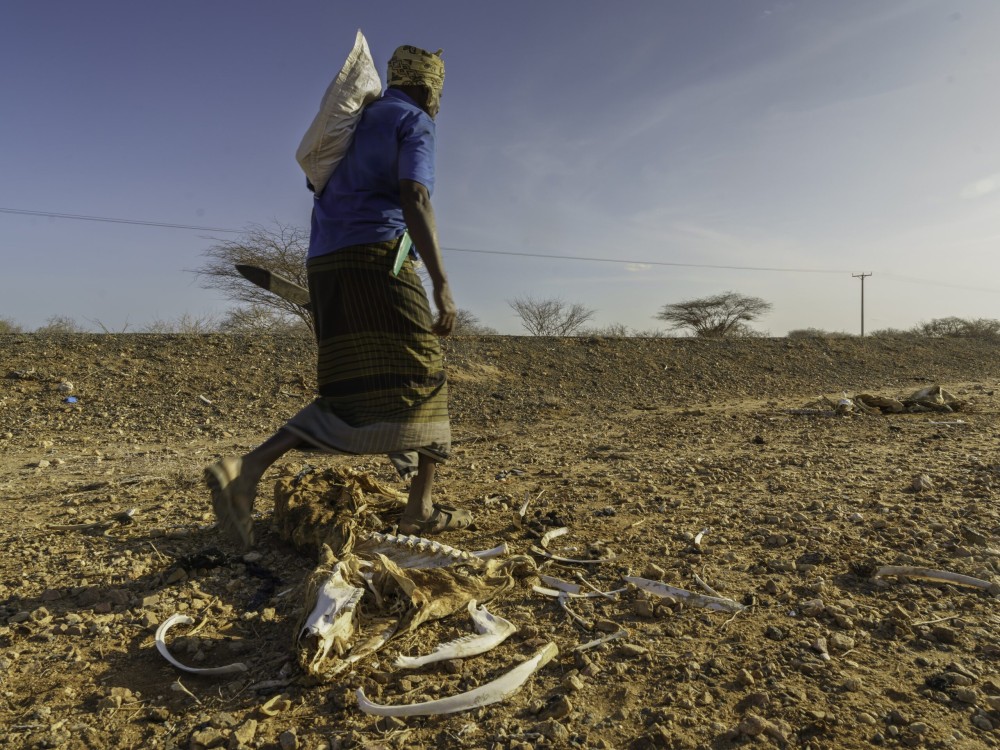In centuries past, climate change was a major concern around the world. It is also one of the significant global problems of the 21st century. Tanzania is a country that is already experiencing the effects of climate change, including rising temperatures, erratic rainfall, and more frequent and severe droughts and floods. These changes are having a significant impact on Tanzania’s people and the environment.
The impacts of climate change on Tanzania’s people
To understand the problem, we must determine the changing rainfall patterns. Tanzania’s agricultural sector, which employs a substantial portion of the population, heavily relies on rainfall patterns. However, climate change has disrupted these patterns, leading to increased variability, irregularity, and intensity of rainfall.
For example, Lake Victoria is a major source of food and water for millions of people in Tanzania. However, the lake is facing a number of challenges due to climate change, including rising temperatures, erratic rainfall, and declining water levels. These changes are having a significant impact on the livelihoods of people who depend on the lake for their sustenance.
In addition, climate change has intensified the occurrence and severity of droughts in Tanzania, resulting in water scarcity in many regions. This scarcity affects both rural and urban areas, impacting access to clean water, sanitation, and hygiene facilities. Women and children, who are traditionally responsible for water collection, often bear the burden of walking long distances in search of water, leading to adverse health outcomes and hindering educational opportunities.
A study conducted by the world bank on climate change knowledge Portal has shown that natural disasters are also becoming more common in Tanzania, and they are having a devastating impact on people’s lives. Floods, droughts, and other extreme weather events are displacing people from their homes, destroying property, and disrupting livelihoods.
The impacts of climate change on Tanzania’s environment
Tanzania faces many impacts of climate change on the environment, where deforestation has become more difficult for trees to grow, and deforestation is accelerating due to the demand for wood for fuel and construction. This is leading to the loss of biodiversity, and it is also contributing to soil erosion and water pollution.
This is evidenced by the erratic rainfall, which has become more unpredictable, making it difficult for farmers to plan their crop cycles. This is leading to crop failures, which further contributes to food insecurity.
A study undertaken in Tanzania by Climate change, Health and WASH from 2013-2018 has shown that Tanzania is currently experiencing severe weather extremes as a result of a changing climate.
Also, climate change is impacting the extensive coastline and coastal ecosystems, which are highly vulnerable to its effects. Rising sea levels and increased storm intensity contribute to coastal erosion, saltwater intrusion into freshwater sources, and the destruction of critical habitats like coral reefs and mangroves. These changes not only affect coastal communities but also impact the economy through reduced fisheries productivity and damage to tourism infrastructure.

The challenges that Tanzania is facing in adapting to climate change
Tanzania faces different challenges in adapting to climate change. One of the major obstacles Tanzania faces in adapting to climate change is limited financial resources and access to advanced technologies. Insufficient funding restricts the implementation of adaptation measures, hindering the country’s ability to invest in climate-resilient infrastructure, early warning systems, and research initiatives. The lack of access to appropriate technologies, such as drought-resistant crops or weather monitoring tools, further compounds the challenges in effectively responding to impacts.
The opportunities for Tanzania to build a more climate-resilient future
Tanzania is a country that is already facing the impacts. Increased temperatures, prolonged droughts, and erratic rainfall are all having a negative impact on the country’s economy, environment, and people. However, Tanzania also has a number of opportunities to build a more climate-resilient future.
Firstly, one of the most important opportunities for Tanzania is to invest in renewable energy. Tanzania has abundant renewable energy resources, including solar, wind, and hydro power. By investing in these resources, Tanzania can reduce its reliance on fossil fuels and mitigate its greenhouse gas emissions. Renewable energy can also help Tanzania improve its energy security and reduce its vulnerability to climate change-related shocks.
Secondly, Tanzania needs to improve its agricultural practices. Tanzania is a largely agricultural country, and its agricultural sector is highly vulnerable to climate change. By improving agricultural practices, Tanzania can increase its crop yields and reduce its reliance on rain-fed agriculture. This will help ensure food security for the country’s growing population and make Tanzania more resilient to climate change.
Additionally, different initiatives should be implemented to enhance success in combating climate change by conducting various researches on it and providing funds and training to environmentalists to ensure it is addressed. Also, private organizations should contribute and promote the sustainability of environmental management by providing funds to researchers for success.
Unique Perspective
I believe Tanzania is still promoting and influencing climate change strategies to ensure success, as other countries in the world do. In order to achieve this phenomenon, all citizens need to cooperate with each other, starting from the grassroots to the national level, in preserving natural resources and sharing education on the impacts on people and the environment. I am confident that if those strategies are undertaken, Tanzania will overcome the impacts of climate change to a large extent.
We need to work together to preserve our natural resources and share education on the impacts of climate change. We need to invest in renewable energy and improve our agricultural practices, we need to be innovative and find new ways to adapt to the changing climate. If we work together, I am confident that Tanzania can overcome the challenges and build a more prosperous future for all.
Read more articles by Salvius Evarister


[…] farming alone is not a comprehensive approach to addressing climate change. Climate change is a complex issue that requires a comprehensive solution. International […]